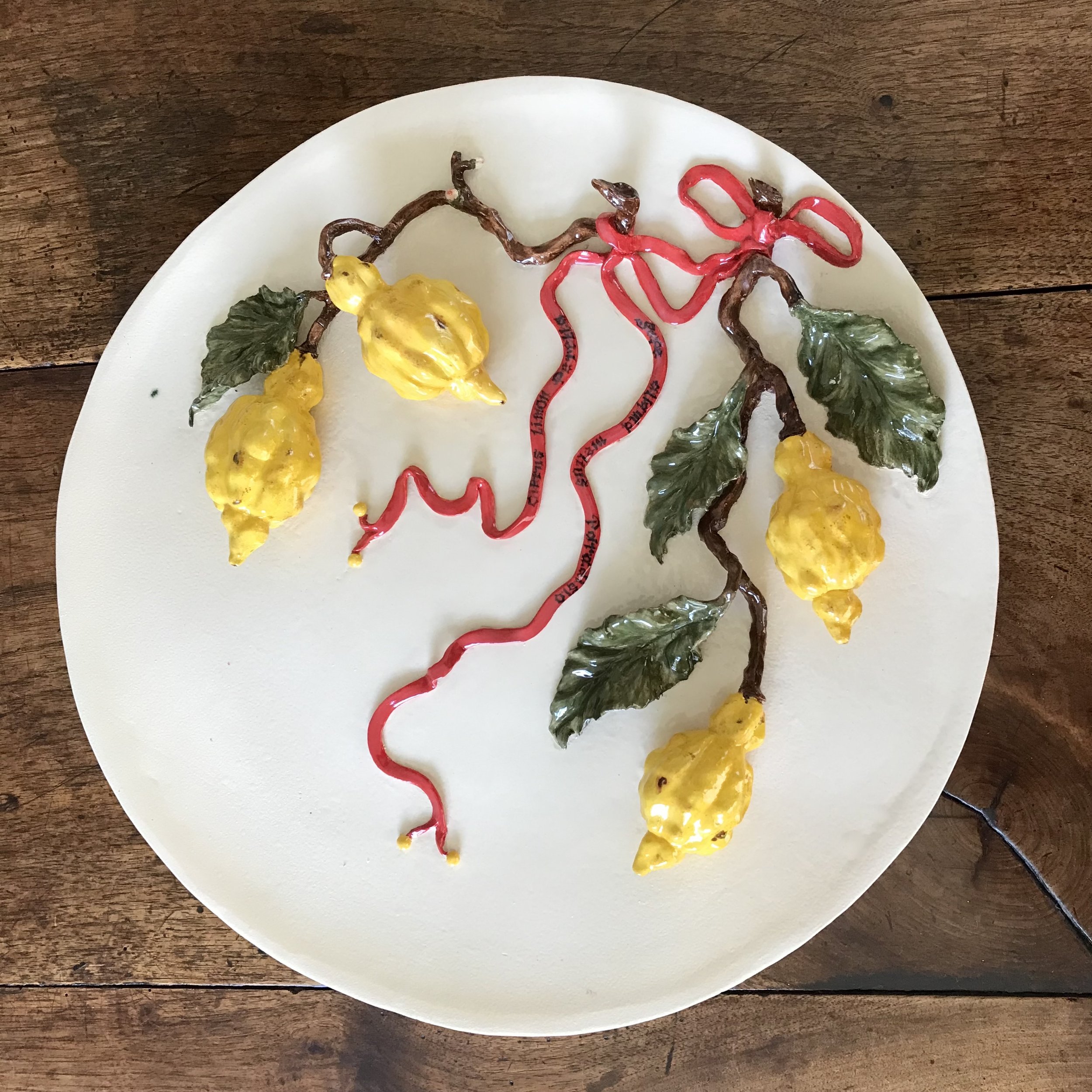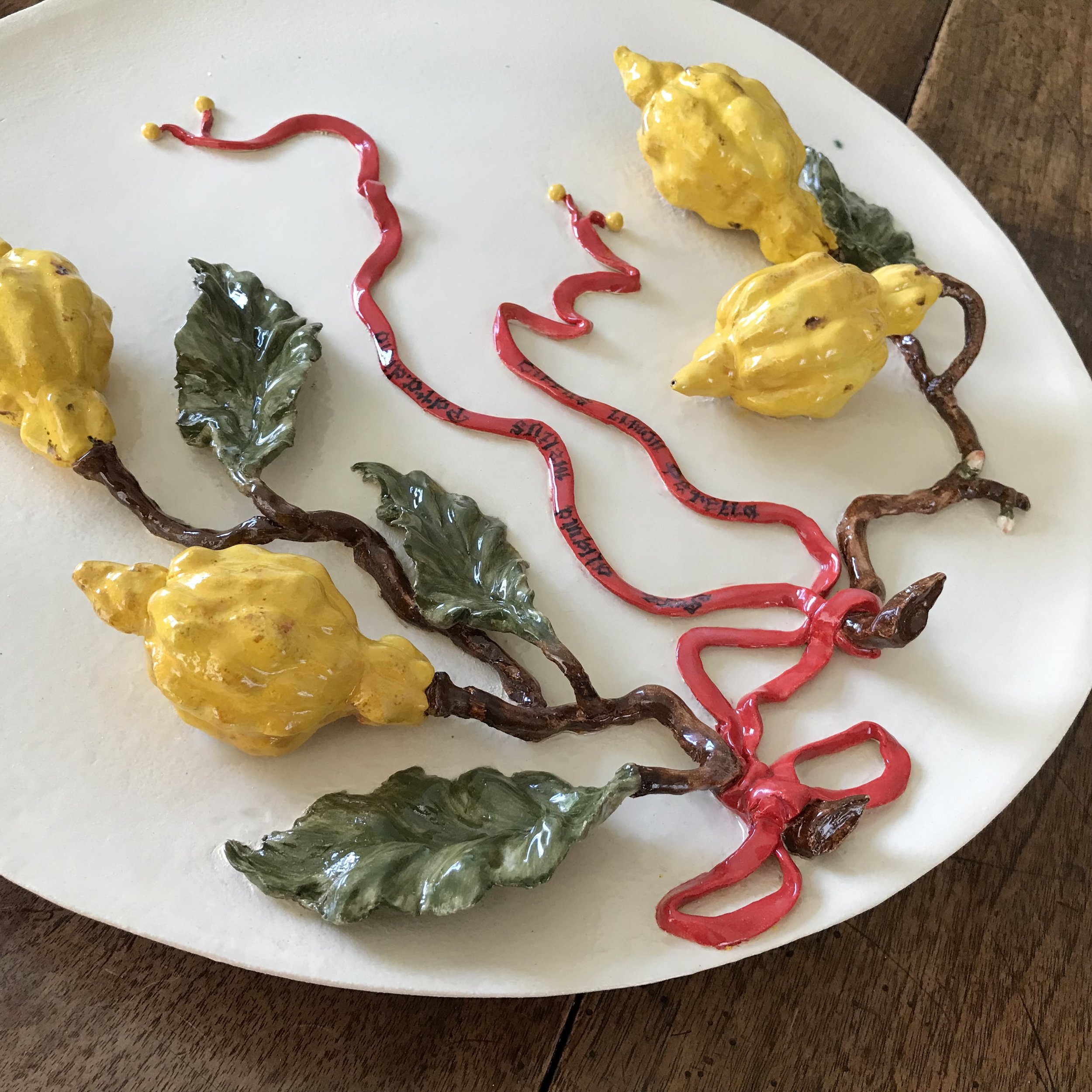


Large Ceramic Citrus Charger
Inspired by the fantastical botanical illustrations of citrus fruits as gathered in the volumes of J. C. Volkamer and G. B. Ferrari during the Italian Renaissance, these monumental chargers similarly display the fruit's noble variety on flowing ribbons alongside words of wisdom from the ancient world.
The red ribbon reads: CITRUS LIMON PERETTA
'sape aliquid melius paradisio' ('Know/ Taste something better than Paradise’ ). Based on a remark made by Cesare Borgia, who said that 'in the Garden of Eden, Eve showed more courage than Adam, when the serpent offered her the forbidden fruit. She knew that there was something better than paradise.’
The Latin verb sapere means ‘to taste' or 'savour something’, but it also conveys a secondary meaning: ‘to know and understand a thing’.
Cornish stoneware clay, formed, sculpted and painted by hand. The plate has an inch thick rim as a base that has two holes inserted with thread so it may be displayed as wall art if desired.
Diameter: 15" (38.5cm)
Height: 2 1/2" (6.3cm)
Large Ceramic Citrus Charger
Inspired by the fantastical botanical illustrations of citrus fruits as gathered in the volumes of J. C. Volkamer and G. B. Ferrari during the Italian Renaissance, these monumental chargers similarly display the fruit's noble variety on flowing ribbons alongside words of wisdom from the ancient world.
The red ribbon reads: CITRUS LIMON PERETTA
'sape aliquid melius paradisio' ('Know/ Taste something better than Paradise’ ). Based on a remark made by Cesare Borgia, who said that 'in the Garden of Eden, Eve showed more courage than Adam, when the serpent offered her the forbidden fruit. She knew that there was something better than paradise.’
The Latin verb sapere means ‘to taste' or 'savour something’, but it also conveys a secondary meaning: ‘to know and understand a thing’.
Cornish stoneware clay, formed, sculpted and painted by hand. The plate has an inch thick rim as a base that has two holes inserted with thread so it may be displayed as wall art if desired.
Diameter: 15" (38.5cm)
Height: 2 1/2" (6.3cm)
